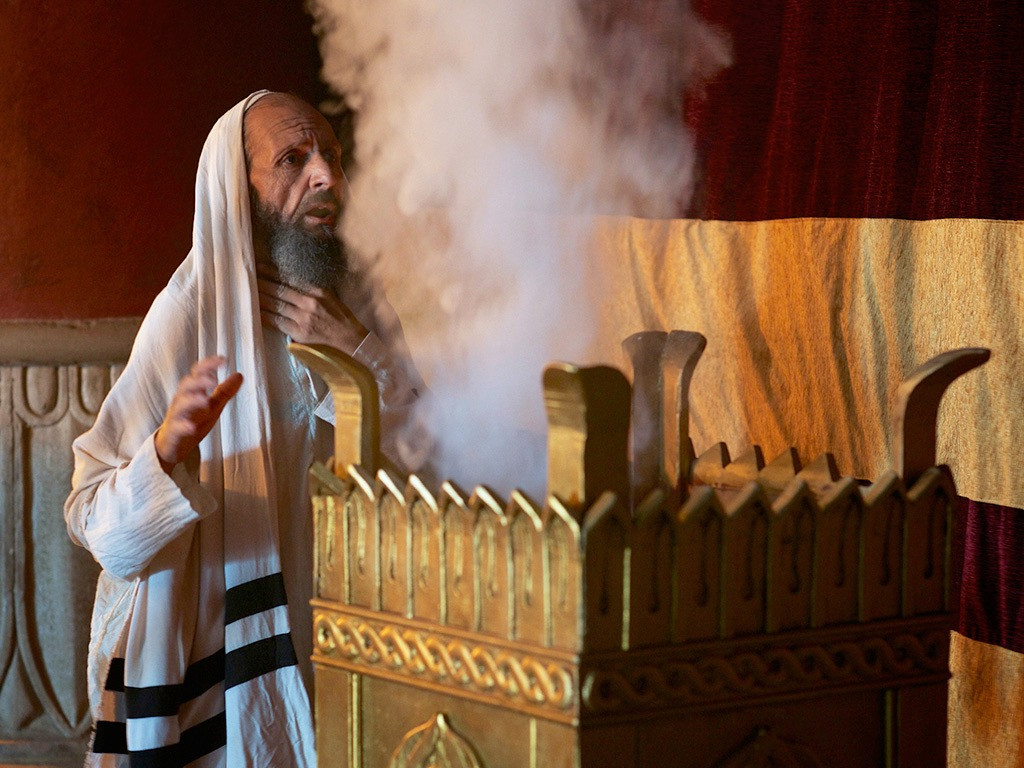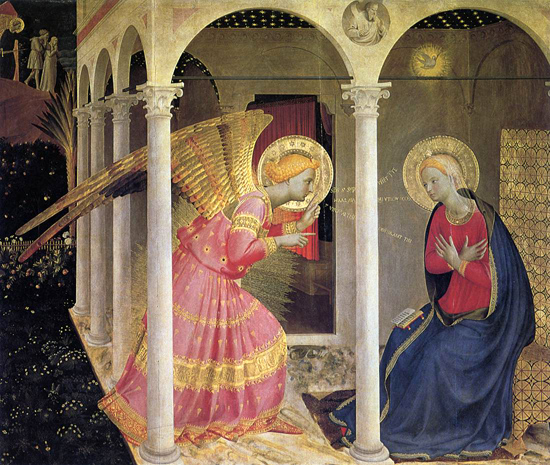18 Zechariah said to the angel, “How can I know that this will happen? For I am an old man, and my wife is getting on in years.” 19 The angel replied, “I am Gabriel. I stand in the presence of God, and I have been sent to speak to you and to bring you this good news. 20 But now, because you did not believe my words, which will be fulfilled in their time, you will become mute, unable to speak, until the day these things occur.” [Luke 1:18-20, NRSV]
34 Mary said to the angel, “How can this be, since I am a virgin?” 35 The angel said to her, “The Holy Spirit will come upon you, and the power of the Most High will overshadow you; therefore the child to be born[d] will be holy; he will be called Son of God. 36 And now, your relative Elizabeth in her old age has also conceived a son, and this is the sixth month for her who was said to be barren. 37 For nothing will be impossible with God.” 38 Then Mary said, “Here am I, the servant of the Lord; let it be with me according to your word.” Then the angel departed from her. [Luke 1:28-38, NRSV]
[L] Zechariah is promised a son. [R] Annunciation, Fra Angelico, 1433.
- Faith, an Important Key
Faith is an essential key in Luke’s Gospel.
Zechariah, a priest, was struck dumb in the most holy place of Israel, the Temple, for lack of faith, unable to complete the liturgy he began, for a dumb-priest could not bless the people.
This contrasts sharply with Jesus, the layman, who, in obedience of faith, surrendered to the Father’s will at Gethsemane (Luke 22:42), and committed his spirit to the Father on the cross (Luke 23:46), blessed his disciples after completing his liturgy of life at the place of Ascension. And then, his disciples returned to Jerusalem with great joy and continually praising God in the Temple (Luke 24:50-53).
Now we come to a comparison between Zechariah and Mary. At both the angelic annunciations to Zechariah and Mary, both the message-recipients questioned the angel, but why was Zechariah alone struck dumb? What’s different in their questions to warrant such a seemingly glaring “bias” or “favouritism”?
- Scripture Testifies to Mary’s Faith
First, the short answer: Scripture attributes it to faith. Zechariah did not believe what the angel said (Luke 1:20); Mary, however, believed (Luke 1:45).
Secondly, on reflection, we do see a subtle difference in their questions: Zechariah self-confidently believed that his and his wife Elizabeth’s old age meant that it was a case of ‘no way!’ (Luke 1:18). Right here, might we not give some thought to the fact that here is a priest, hearing God’s message, delivered by an angel, at the holiest of places in Israel, the Temple. Surely, a seasoned man who deals with holy things ought to know better about what God can do; and yet, he thought he knew better about what God cannot do! Mary, on the other hand, who was lay, young, and had no husband and so did not have the “spiritual or mental blocks” that confronted Zechariah, only asked how God’s will would be achieved (Luke 1:34). This explanation is supported by the fact that this was later followed by her fiat out of profound faith, while Scripture remains silent on any relenting and positive response from Zechariah at that point.
- A Delightful Surprise
In passing, an element of delightful “surprise” is found in the Annunciation to Zechariah. In the text, John’s parents were pious, law-abiding couple, steeped in righteousness. Yet old and barren, they had privately suffered it as a “disgrace” (Luke 1:25). But barrenness is never due to the presence of sin or of condemnation. Rather, for God, that becomes an opportunity for blessing as for example, in many cases God gives a child late either through maternal child-bearing or by adoption. Furthermore, and this is super-important in many other cases, God leads a couple to pursue other opportunities of service free from, pardon the expression, the “burdensome responsibilities” of child-care. Caring for young children puts a lot of strain on one’s capacity to serve outside of the family. In truth, it “incapacitated” a friend, who also wanted to go overseas to take up serious theological studies at the same time that we embarked upon that journey. He could not go, simply because he had a string of young children to care for.
And always, take heart: precisely because you are unmarried or married but childless, God may have something “special” for you.
- In any “hopeless” situation, it is not easy for us humans to reach a level of trust where we can say with confidence: For humans, “cannot”; for God, “Nothing cannot”. Repeat that in Luke, and it reads: At the Annunciation, “For nothing will be impossible with God” (Luke 1:37), and in the Lord Jesus’ teaching about a rich person entering the kingdom of heaven, “What is impossible with men is possible with God” (Luke 18:27).
Copyright © Dr. Jeffrey & Angie Goh, November 2025. All rights reserved.
To comment, email jeffangiegoh@gmail.com.



